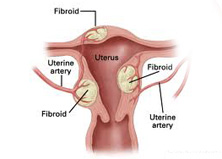Website maintained by Bageo Pharmaceuticals Pvt Ltd. All Rights Reserved

What is pre-eclampsia?
Pre-eclampsia is a condition that typically occurs after 20 weeks of pregnancy. It is a combination of:
The exact cause of pre-eclampsia is not understood.
Often there are no symptoms and it may be picked up at your routine antenatal appointments when you have your blood pressure checked and urine tested. This is why you are asked to bring a urine sample to your appointments.
Why do I need to know if I have pre-eclampsia?
Pre-eclampsia is common, affecting between two and eight in 100 women during pregnancy. It is usually mild and normally has very little effect on pregnancy. However, it is important to know if you have the condition because, in a small number of cases, it can develop into a more serious illness. Severe pre- eclampsia can be life-threatening for both mother and baby.
Around one in 200 women (0.5%) develop severe pre-eclampsia during pregnancy. The symptoms tend to occur later on in pregnancy but can also occur for the first time only after birth.
The symptoms of severe pre-eclampsia include:
These symptoms are serious and you should seek medical help immediately. If in doubt, contact the maternity unit at your local hospital.
In severe pre-eclampsia, other organs, such as the liver or kidneys, can sometimes become affected and there can be problems with blood clotting.
Severe pre-eclampsia may progress to convulsions or seizures before or just after the baby’s birth. These seizures are called eclamptic fits and are rare, occurring in only one in 4000 pregnancies.
Who is at risk of pre-eclampsia and can it be prevented?
Pre-eclampsia can occur in any pregnancy but you are at higher risk if:
If any of these apply to you, you should be advised to take low-dose aspirin (75 mg) once a day from 12 weeks of pregnancy, to reduce your risk.
The importance of other factors is less clear-cut, but you are more likely to develop pre-eclampsia if more than one of the following applies:
If you have more than one of these risk factors, you may also be advised to take low-dose aspirin once a day from 12 weeks of pregnancy.
How is pre-eclampsia monitored?
If you are diagnosed with pre-eclampsia, you should attend hospital for assessment.
While you are at the hospital, your blood pressure will be measured regularly and you may be offered medication to help lower it. Your urine will be tested to measure the amount of protein it contains and you will also have blood tests done. Your baby’s heart rate will be monitored and you may have ultrasound scans to measure your baby’s growth and wellbeing.
What happens next?
You will continue to be monitored closely to check that you can safely carry on with your pregnancy. This may be done on an outpatient basis if you have mild pre-eclampsia. You are likely to be advised to have your baby at about 37 weeks of pregnancy, or earlier if there are concerns about you or your baby. This may mean you will need to have labour induced or, if you are having a caesarean section, to have it earlier than planned.
What happens if I develop severe pre-eclampsia?
If you develop severe pre-eclampsia, you will be cared for by a specialist team. The only way to prevent serious complications is for your baby to be born. Each pregnancy is unique and the exact timing will depend on your own particular situation. This should be discussed with you. There may be enough time to induce your labour. In some cases, the birth will need to be by caesarean section.
Treatment includes medication (either tablets or via a drip) to lower and control your blood pressure. You will also be given medication to prevent eclamptic fits if your baby is expected to be born within the next 24 hours or if you have experienced an eclamptic fit.
You will be closely monitored on the labour ward. In more serious cases, you may need to be admitted to an intensive care or high dependency unit.
Will I get pre-eclampsia in a future pregnancy?
Overall, one in six women who have had pre-eclampsia will get it again in a future pregnancy. Of women who had severe pre-eclampsia, or eclampsia:
You should be given information about the chance, in your individual situation, of getting pre-eclampsia in a future pregnancy and about any additional care that you may need. It is advisable to contact your midwife as early as possible once you know you are pregnant again.
Further information
NICE guidance on The Management of Hypertensive Disorders during Pregnancy: www.nice.org.uk/cg107.
Sources and acknowledgements